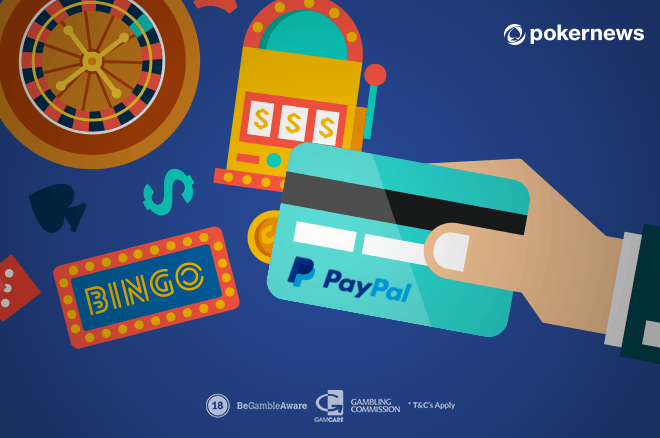- Why Do American Online Casinos Have Bad Games Download
- Why Do American Online Casinos Have Bad Games To Play
- Why Do American Online Casinos Have Bad Games Online
Games have been played for a long, long time now. Remember those countless hours we spent playing Pacman on the arcades or playing Pokemon on our Gameboy Colors as children? For sure we do .
While a lot of research has been done concerning the possible negative health effects of video gaming, it is not often highlighted the positive effects of video gaming, what is so appealing about games, and why we play and continue to play. However, numerous studies have been done showing the key factors of what motivates us to play games.
A post shared by NiceOne Barcelona (@niceonebcn) on
Online Gambling Don’t Roll the Dice. If you’ve ever thought about visiting a cyber casino, here’s something you should know: it’s illegal to gamble online in the United States. “You can go to Vegas. You can go to Atlantic City. You can go to a racetrack. You can go to those places and gamble legally. But don’t do it online. Image Credit: linkedin.com. While both Las Vegas casinos and local venues on Native American reservations might offer you comps like free nights in the hotel, meals and drinks, there is a big.
Nick Yee, a scientist who made one of the first steps in building a framework for studying motivations, found three motivation components1. There is the achievement component, which includes the want to advance in the game, the interest in the rules and system of the game, and the want to compete with others. Next is the social component, which is the want to form connections with others, liking to chat and help other players, and the want to be a part of a group effort. Last, there is the immersion component, which is creating and customizing a character to play in the unique story of the game as well as wanting to a escape from real-life. But there has to be more to why we like to game so much though, right?
Run your own studies, playtests and UX Analysis in the cloud using Antidote.
Another study2 found other motivational factors using Richard Ryan and Edward Deci’s Self Determination Theory3. That is a theory which states that human behavior is driven by the need for competence, autonomy, and relatedness. If those needs are met, we enjoy activities more, even in gaming. Competence is fulfilled in games through flow, which is a completely focused mental state, and is used to explain the enjoyment of games. Flow is met in games when a game challenges the player enough so that it is still interesting and makes gamer want to continue to play, but not too hard where it is not fun anymore or too easy where it becomes boring. Autonomy is met because we have control in games and we voluntarily play games. Lastly, relatedness is fulfilled because we are able to interact and compete with others in a way and world that’s different from real life.
Other studies have researched the features of games that are attractive to players. One study4 found many features such as the enjoyment and relaxation gained from gaming, having no constraints in games like in one may have in real life, the artistry of the game, and the interactivity and competitiveness of a game. Hmmm, no wonder why we can’t get enough of going to different worlds to take down Bowser, and save Princess Peach in Super Mario Bros.
Now, let’s talk about why we continue to play games. A study done at National Dong Hwa University5, found that the satisfaction and flow experience plays a major role in whether one intends to continue to play a game. As mentioned before, factors that can relate to flow and enjoyment include the game story, graphics, and control6. Those all contribute to continuance of playing. The social part of gaming is also very important. Especially in multiplayer and online games, if one has achieved a lot, gained recognition, or has made many connections with players, those play a significant roles in if one will continue to play a game7.
A post shared by NiceOne Barcelona (@niceonebcn) on
Finally, let’s point out some positive effects of gaming. Research has shown that as opposed to non-gamers, gamers had better visuo-motor coordination, spatial representation, iconic skill, and visual attention8. Furthermore, recently there’s been a change in focus in the gaming world, where people have had an interest in using games for a purpose other than just entertainment. They are called serious games, and the purposes are related to helping with problems in fields such as health care, education, and more. So despite what our parents may have said to us, it’s looking like all those hours we spent and are continuing to spend on video games are not a waste. Not only is it fun and relaxing, but games are starting to change the world beyond from just entertaining us on our sofas.
Would you like to understand better gamer psychology? Take a look at our playtesting solutions!

References:
1 Yee, Nick. “Motivations for Play in Online Games.” CyberPsychology & Behavior 9.6 (2006): 772-75. Web. 17 Oct. 2016.
2 Boyle, Elizabeth,Connolly, Thomas M., Hainey, Thomas. “The role of psychology in understanding the impact of computer games.” Entertainment Computing 2.2 (2011): 69-74. Web. 17 Oct. 2016.
3 Ryan, R.M., and Deci, E.L. “Self-Determination Theory and the Facilitation of Intrinsic Motivation,Social Development, and Well-Being.” American Psychologist 55.1 (2000): 68-78. Web. 17 Oct. 2016.
4 Tone, Hui-Jie, Zhao, Hao-Rui, Yan, Wan-Seng. “The attraction of online games: An important factor for Internet Addiction.” Computers in Human Behavior 30 (2014): 321-327. Web. 17 Oct. 2016.
5 Chang, Chiao-Chen. “Examining users′ intention to continue using social network games: A flow experience perspective.” Telematics and Informatics 30.4 (2013): 311-321. Web. 17 Oct. 2016.
6 Wu, Jiming, Li, Pengtao, and Rao, Shashank. “Why they enjoy virtual game worlds? An empirical investigation.” Journal of Electronic Commerce Research 9.3 (2008): 219-230. Web. 17 Oct. 2016.
7 Ng, Brian D. and Wiemer-Hastings, Peter. “Addiction to the Internet and Online Gaming.” CyberPsychology & Behavior. June 2005, 8(2): 110-113. Web. 17 Oct. 2016.
8 Subrahmanyam, Kaveri, and Greenfield, Patricia M. “Effect of video game practice on spatial skills in girls and boys.” Journal of Applied Developmental Psychology 15.1 (1994): 13-32. Web. 17 Oct. 2016.
Most gamblers lose. So why do people bet their hard-earned money? Find out a bit about the psychology of gambling, why people bet money and the reasons for gambling.
Psychology of Gambling: Reasons for Gambling
Ok, so we all understand that gambling offers you the chance of winning money or prizes, but have you considered some of the other reasons for gambling? A look into the psychology of gambling offers insight into that question.
Why Do People Gamble? - Risk Taking
One of the reasons for gambling is that it's human nature to feel excited when taking risks and the positive feeling gained from gambling is no different. 'Will my numbers come up?' 'Will my team win?' The sense of anticipation creates a natural high, an adrenalin rush, a feeling that very many of us seek when looking for fun and entertainment. A feeling that some people believe they cannot live without.
Why Do People Gamble? - Escapism
The gambling environment can provide an escape from everyday life. Whether it be the glitzy casino environment, a loud and exciting amusement arcade or even an online betting company, for the time that we are taking part we can be surrounded by different people, different sounds and emotions, all of which stimulate and arouse our senses.
Why Do People Gamble? - Glamorous
The media and advertising agencies understand the psychology of gambling and often portray a stylish, sexy, fashionable image of gambling. In film and TV, we see characters enjoying a night at the casino or an afternoon at the races. There is often a suggestion of 'high society' and attending at 'a place to be seen'.
Why Do People Gamble? - Social
Why Do American Online Casinos Have Bad Games Download
Gambling is accepted as part of this country's culture and as such is widely participated in (with varying frequency) by the majority of the population. Some young people are introduced to gambling by learning to play card games with their parents at home, maybe we go the bingo with friends on a Friday night or meet after school at the amusement arcade.
Psychology of Gambling: The Common Misperception
The above reasons for gambling all tie into this: most people think about gambling as a low-risk, high-yield proposition. In reality, it's the opposite: a high-risk, low-yield situation. The odds always favor the house. Despite that, the thought and excitement of hitting a casino jackpot are often too alluring - regardless of its probability.
Learn more about Types of Gamblers and Signs of Gambling Addiction.

Sources:
- Illinois Institute for Addiction Recovery
Why Do American Online Casinos Have Bad Games To Play
next: What Type of Gambling is the Most Addictive and Why?
~ all gambling addiction articles
~ all articles on addictions

Why Do American Online Casinos Have Bad Games Online
APA Reference
Gluck, S. (2008, December 29). Psychology of Gambling: Why Do People Gamble?, HealthyPlace. Retrieved on 2020, December 1 from https://www.healthyplace.com/addictions/gambling-addiction/psychology-of-gambling-reasons-for-gambling